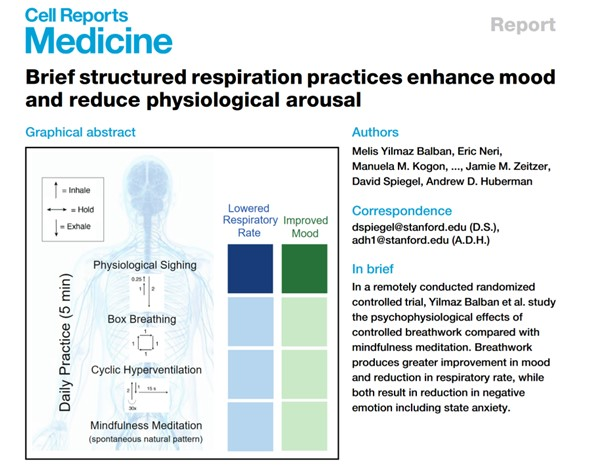In a very interesting article in Cell Reports Medicine Andrew Huberman and collaegues report a remote, randomized, controlled study of three different daily 5-min breathwork exercises compared with an equivalent period of mindfulness meditation over 1 month.
The Highlights of the outcomes are:
👉🏿 Daily 5-minute breathwork and mindfulness meditation improve mood and reduce anxiety
👉🏼 Breathwork improves mood and physiological arousal more than mindfulness meditation
👉 Cyclic sighing is most effective at improving mood and reducing respiratory rate
Controlled breathing directly influences respiratory rate, which can cause more immediate physiological and psychological calming effects by increasing vagal tone during slow expiration. While mindfulness meditation might decrease sympathetic tone in the long run, that is not its primary purpose or an expected acute effect.
The conclusion of the authors is that daily 5-min cyclic sighing has promise as an effective stress management exercise.
It needs to be mentioned that this research zoomed in on a very small part of mindfulness practice and its effects; namely, on the practice of letting ones attention rest on the breath, and on the effects of this practice on stress and mood regulation. Though mindfulness has at its core ‘intentionality’ , Mindfulness is a natural trainable human capacity that helps bring attention to all experiences with wise discernment and conveys attitudes of curiosity, friendliness and compassion. The effects of these qualities reach far beyond regulating personal stress and mood regulation.
So combining the practice of cyclic breathing -for direct stress and mood regulation- and the practice of mindfulness -for cultivating awareness, wise discernment, curiosity and compassion- will provide tools and skills to live our lives with more ease, more skillfully and to meet other beings and our environment with kindness, care, curiosity and compassion.


